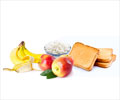- Travelers' diarrhea - (https://en.wikipedia.org/wiki/traveler%27s_diarrhea)
- About Traveler's diarrhea - (http://www.mayoclinic.org/diseases-conditions/travelers-diarrhea/basics/definition/con-20019237)
- Traveler's diarrhea diet - (https://www.nlm.nih.gov/medlineplus/ency/article/002433.htm)
What is Traveler’s Diarrhea?
Traveler’s Diarrhea (TD) is a disorder of digestive tract that commonly causes loose stools and abdominal cramps and usually affects travelers due to eating contaminated food or drinking contaminated water. However, this unformed or loose stools passed by a traveler in 24 hour period is not serious.
TD results in places where water is not clean or food is not safely handled. Traveler’s diarrhea is prevalent among third-world or developing countries in Latin America, Africa, the Middle East, and Asia. TD is usually accompanied by abdominal cramps, nausea, and bloating. It is also known as tourist diarrhea or traveler's dysentery.
What are the Causes of Traveler’s Diarrhea?
The most common cause of traveler's diarrhea is infectious agents including bacteria, viruses and parasites. These agents enter the digestive tract and attack the defense mechanisms, thereby causing TD. About 80% of cases are due to bacterial enteropathogens.
Most common causative agent is enterotoxigenic Escherichia coli (ETEC) bacteria, which is linked with cramps and low-grade or no fever. The bacteria attach itself to walls of the intestine and release a toxin, which causes diarrhea and abdominal cramps. Other common bacterial pathogens are Shigella and Salmonella species. Less frequently found pathogens include Campylobacter, Yersinia, Aeromonas, and Plesiomonas species. In adults, the virus is responsible for less than 20% of cases, whereas in children it can cause 70% of cases. Protozoans like Giardia lamblia and Cryptosporidium can also cause diarrhea.
What are the Symptoms of Traveler’s Diarrhea?
Typical symptoms:
- Abrupt onset of diarrhea
- The illness usually causes increased frequency, volume and weight of stool. Typically, a traveler would experience four to five loose or watery bowel movements each day.
Other commonly associated symptoms include:
- Nausea
- Vomiting
- Abdominal cramping
- Bloating
- Fever
- Urgent need to defecate
- Malaise (discomfort or weakness)
- Explosive and painful gas
- Loss of appetite
How do you Treat Traveler’s Diarrhea?
TD resolves itself and no intervention or drug treatment may be required. However, it is important to keep yourself hydrated with liquids like water or juices. Oral rehydration salt can also be taken to replace lost fluids and electrolytes. Medications may be sought if there is no sign of relief.
- Anti-microbial Agents: These should be used if three or more loose stools develop in an 8 hour period and if associated with nausea, vomiting, fever, abdominal cramps or blood in stools.
- Antibiotics:These are usually given for 3-5 days. At present fluoroquinolones are the first line of treatment. Trimethoprim-sulfamethoxazole and doxycycline are no longer recommended due to a high level of resistance to these agents.
- Anti-Motility Agents: These are not recommended for infants or people having a fever or bloody diarrhea, as they can postpone clearance of infectious organism and can make the illness worse. Also, don't use anti-motility drugs after 48 hours if suffering from abdominal pain or signs and symptoms worsen and diarrhea is continuing.
- Bismuth Subsalicylate: It is available over the counter and can reduce the frequency of stools and shorten the duration of illness. But, it is contraindicated in children, pregnant women or people allergic to aspirin.
If diarrhea still continues despite therapy, the doctor should be consulted for possible parasitic infection.
How Can Traveler’s Diarrhea be Prevented?
Following preventive measures can be adopted to minimize the risk of TD:
- Don't eat food or drink beverages obtained from local street vendors or other establishments where there is a lack of hygiene conditions.
- Don't eat raw, undercooked meat and seafood.
- Refrain from eating fresh fruits and vegetables without washing. Wash all the fruits and vegetables before consumption.
- Handle well-cooked and packaged foods for better safety.
- Avoid tap water, ice cream, unpasteurized milk, and dairy products as they carry a high risk of TD.
- Take beverages such as hot tea or coffee, boiled water adequately treated with iodine or chlorine.
- Use bottled water for brushing your teeth.
- Use bottled or boiled water for drinking and preparing baby formula.
- Don't swim in contaminated water.
- As a public health measure, avoid taking too much of antibiotics for preventing traveler's diarrhea as it can lead to antibiotic-resistant bacteria.
- Antibiotics offer no protection against viruses and parasites and can cause unpleasant side effects like skin rashes, skin reactions to the sun and vaginal yeast infections.
- In some cases, bismuth subsalicylate is recommended by doctors for reducing the likelihood of diarrhea. But, don't take this medication greater than three weeks and if allergic to aspirin, pregnant or on certain medications like anticoagulants.
Health Tips
- Watch your children while playing if they have TD. So that they don't take in the dust while playing.
- Talk to your doctor before traveling, if you are at risk of having dangerous infections due to chronic bowel diseases, kidney disease, cancer, diabetes, or HIV.
- Rifaximin can help in preventing traveler's diarrhea. Ask your doctor if taking it is right for you.
- Have 8-10 glasses of clear liquids daily. Water or oral rehydration solution (ORS) is good in these conditions.
- Take small meals after every few hours instead of three big meals.
- Take some salty foods like pretzels, soup
- Consume foods with high potassium content such as bananas, peeled potatoes and fruit juices.
- For children, give fluids for initial 4-6 hours. First try with 1 ounce (2 tablespoons) of fluid in every 30-60 minutes.
- Seek medical help right away if you or your child have severe dehydration, fever or blood in stools.
- Often wash your hands.
Once diarrhea goes away, you can return to your normal diet. But make sure you use dairy products, beverages with caffeine and high fiber foods cautiously.








